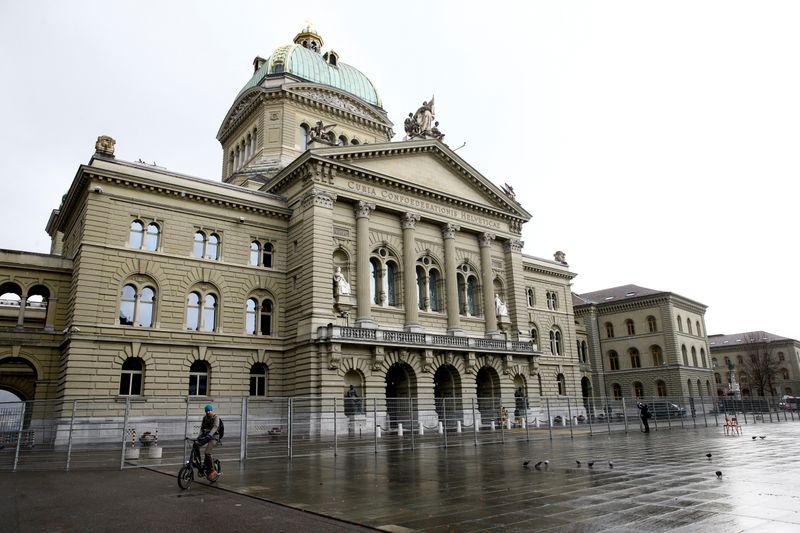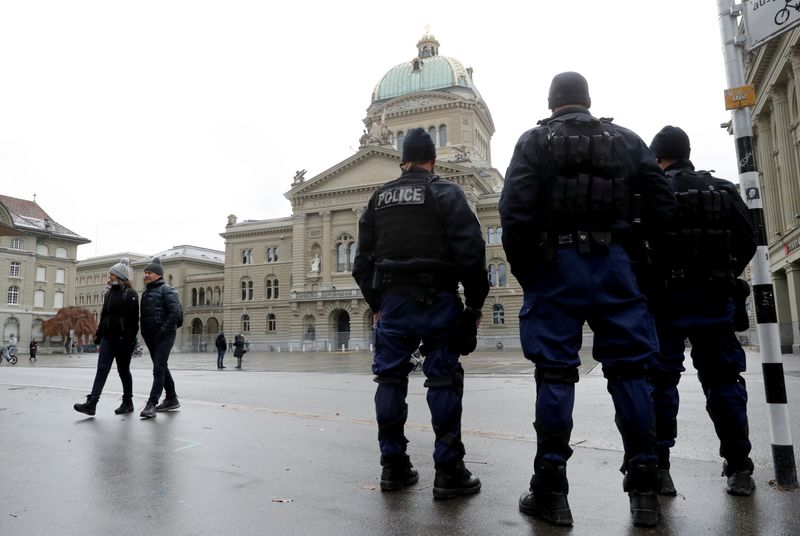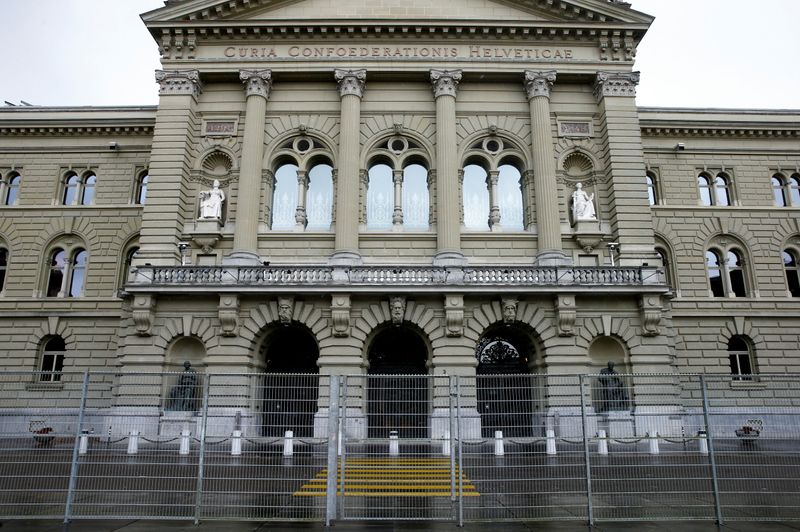ZURICH (Reuters) – Swiss voters on Sunday backed the government’s pandemic response plan by a bigger than expected majority in a referendum, paving the way for the continuation of exceptional measures to stem the rising tide of COVID-19 cases.
Some 62.01% voted in favour of a law passed earlier this year to provide financial aid to people hit by the COVID-19 crisis and laying the foundation for certificates giving proof of COVID-19 vaccination, recovery or a negative test. These are currently required to enter bars, restaurants and certain events.
A poll on Nov. 7 had found opposition to the government’s COVID-19 law growing, with 38% against it.
Opponents of restrictions on public life imposed to curb coronavirus infections had triggered a binding referendum under Switzerland’s system of direct democracy, held as cases have risen to levels the government this week deemed “critical”.
The divisive debate had prompted large-scale protests and what Health Minister Alain Berset on Sunday called “anger, hate, intimidations and threats”.
He called for solidarity following the vote, saying it was time to move forward and accept the result, particularly as the country faces an unknown threat from the new Omicron variant.
“We have a mutual enemy: the virus, and the virus doesn’t care about our fights,” Berset told a news conference. “Now we must find our way back together, and we all have a common goal: to bring this pandemic under control.”
The government has largely backed away from tightening measures even as cases approach record highs, but on Friday and Saturday it imposed new travel restrictions to stem the spread of the Omicron variant that has sparked global concern.
Sunday’s vote in favour of the COVID-19 law was broadly hailed as a success by labour unions and business association economiesuisse, although the latter appealed to politicians to use available pandemic response measures “responsibly.”
Martina Bircher of the conservative Swiss People’s Party (SVP), which opposed the law, said the SVP would fight a further broadening of the COVID-19 certificate’s use “vehemently”, while other opponents expressed disappointment.
“Even if the law has been accepted, it is important to note that the COVID law breaks 10 articles of the constitution,” Josef Ender, a spokesperson for one of the groups that had prompted the referendum, told Swiss broadcaster SRF.
In other referendum votes on Sunday, nearly 61% of voters accepted a labour union-backed proposal to support nurses, while more than 68% of voters rejected a proposal to select federal judges by lottery from a pool of candidates proposed by experts.
For referendum motions to pass they must win a simple majority of the votes cast nationwide while also winning support in a majority of cantons or regions.
($1 = 0.9239 Swiss francs)
(Reporting by Brenna Hughes Neghaiwi; Editing by Louise Heavens, David Goodman and Catherine Evans)




















